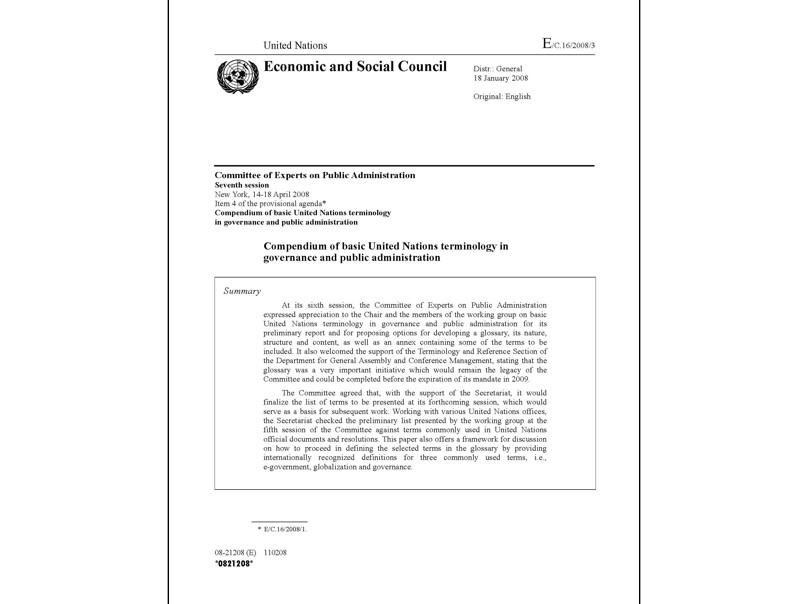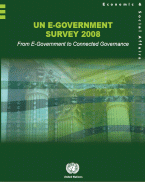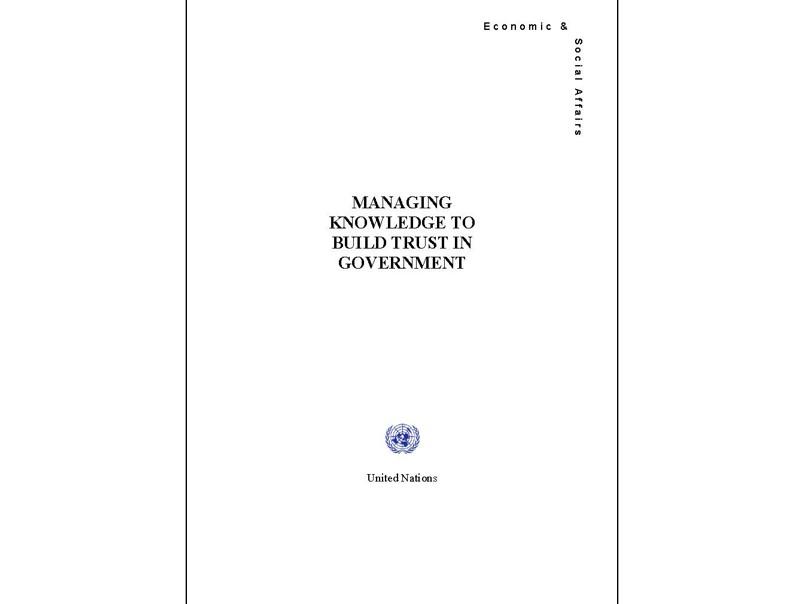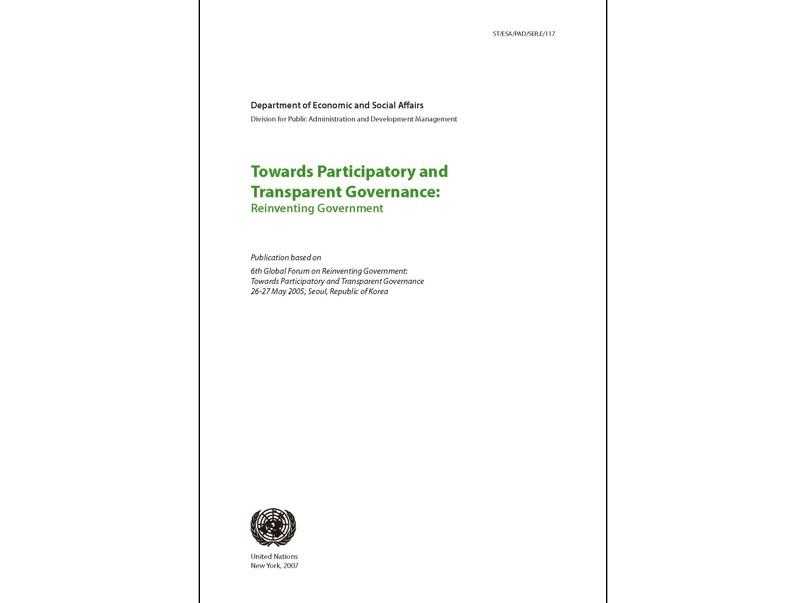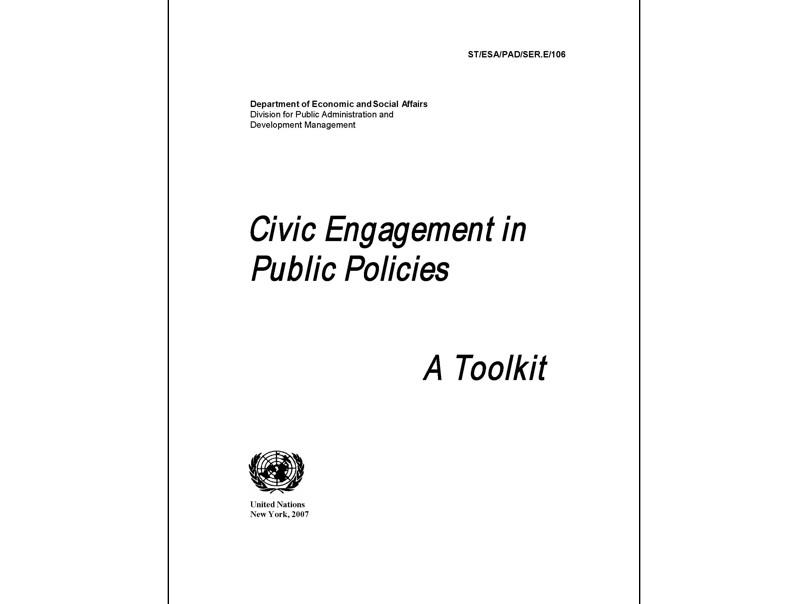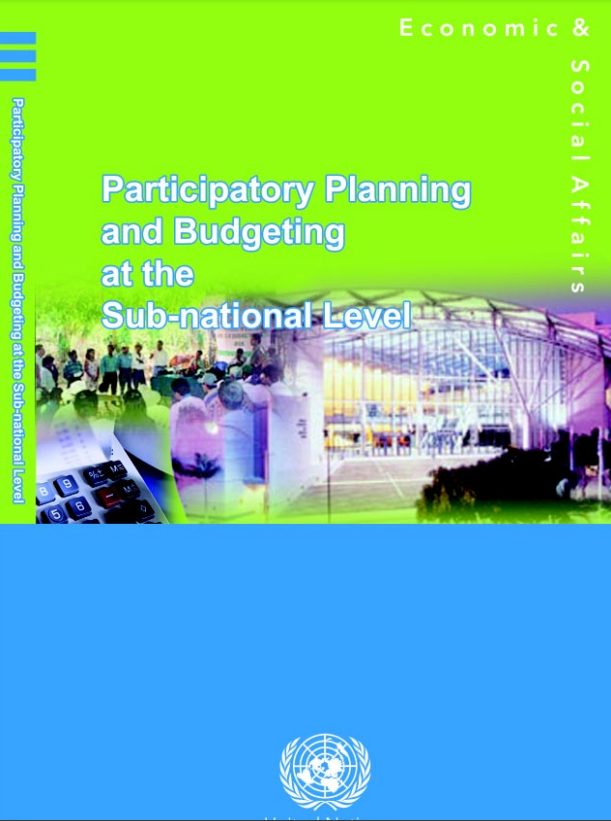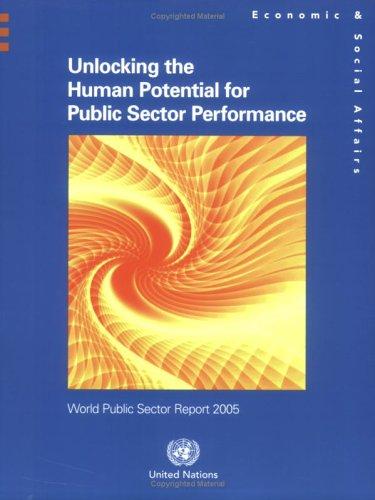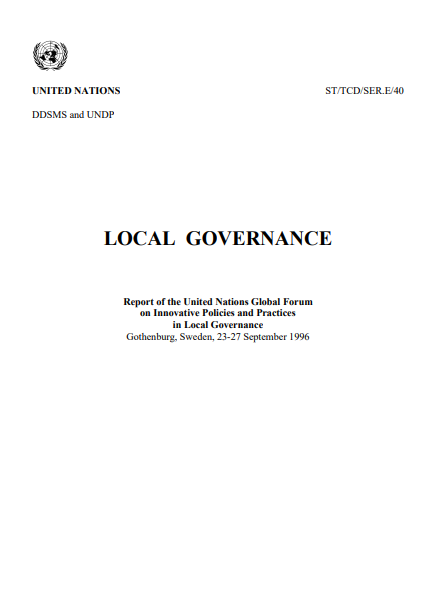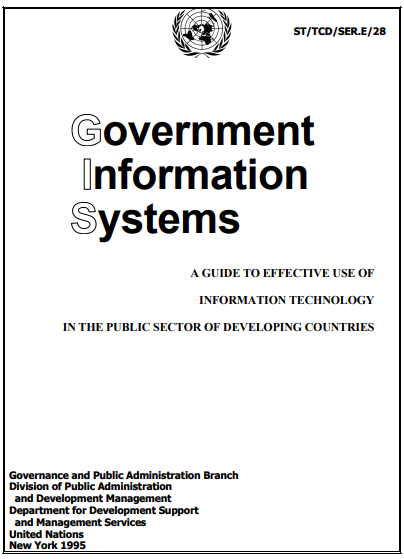| Compendia
Compendium of Basic United Nations Terminology in Governance and Public Administration
At its sixth session, the Committee of Experts on Public Administration expressed appreciation to the Chair and the members of the working group on basic United Nations terminology in governance and public administration for its preliminary report…
| UN E-Government Surveys | Digital Government
From E-Government to Connected Governance
From E-Government to Connected Governance
The UN E-Government Survey 2008: From E-Government to Connected Governance assesses the E-Government Development of the 192 Member States of the UN according to a quantitative composite index of e-readiness…
| Capacity Development Reports | Public Institutions | Transformational Leadership and New Mindsets
Managing Knowledge to Build Trust in Government
The workshop on Managing Knowledge to Build Trust in Government was organized to exchange knowledge and practices worldwide, to challenge current thinking and bring to light best practices that cut across geographical boundaries, and to develop…
| Good Practices and Innovations in Public Governance | Public Service Innovation
Innovations in Governance in the Middle East, North Africa, and Western Balkans: Making Governments Work Better in the Mediterranean Region
Innovations in Governance in the Middle East, North Africa, and Western Balkans: Making Governments Work Better in the Mediterranean region leads us through the journey of innovation by analysing the challenges and opportunities that governments in…
| Capacity Development Reports | Participation and Accountability
Toward Participatory and Transparent Governance: Reinventing Government
This publication emerged from the presentations, discussions, and conclusions of nine capacity development workshops, which examined the theme of participatory and transparent governance as part of the 6th Global Forum on Reinventing Government. In…
| Handbooks | Participation and Accountability
Civic Engagement in Public Policies: A Toolkit
This toolkit highlights emerging innovative processes, methods and mechanisms that foster the engagement of civil society, the private sector and citizens in general in public policies. It aims to assist governments, civil society and other relevant…
| Reports | Local Governance | Participation and Accountability
Participatory Planning Participatory Planning and Budgeting Budgeting at the Sub-national Level
This publication serves as a reference and guide for local governments, non-governmental organizations, civil society and institutions, and will contribute to advancing the discussions in government-community engagements in fiscal processes. UNDESA…
| World Public Sector Reports | Transformational Leadership and New Mindsets
World Public Sector Report 2005
Unlocking the Human Potential for Public Sector Performance
As recommended by the UN Committee of Experts on Public Administration (UNCEPA), the third World Public Sector Report will be published in 2005, with a particular thematic focus on human…
| UN E-Government Surveys | World Public Sector Reports | Digital Government
World Public Sector Report 2003
E-Government at the CrossroadsThe World Public Sector Report 2003 presents a view of e-government as a tool for creating public value. It puts e-government development in the context of the United Nations Millennium Declaration, the Report claims…
| Publications
Administrative Reforms: Country Profiles of Five Asian Countries
In recent years, many countries have undertaken administrative reform as a crucial step towards strengthening their economy and better management of their social development. The state is still playing a key role in the change management of nations…
| Publications | Local Governance
Local Governance- Report of the United Nations Global Forum on Innovation Policies and Practices in Local Governance
Discussions about innovative aspects of the relationship between central and local government (with a view to decentralization and strengthening the mobilization of civil society) are critical to the practical implementation of the Agenda for Peace…
| Publications | Digital Government
Government Information Systems
Inexpensive and powerful microcomputers, telecommunications technologies, and information systems have become an essential element of the development process of developing countries. Information systems for governance and public administration, as…
 欢迎来到联合国,您的世界!
欢迎来到联合国,您的世界!
